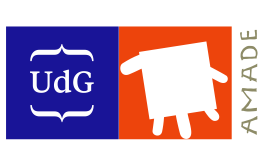
28 Oct PhD position – Understanding and tailoring residuals stresses and its relaxation for an improved composite performance – RELAX
Project funded by the Spanish Research Agency (2026-2028)
APPLICATION DEADLINE
31/01/2026 11:59 pm – Europe/Brussels
OFFER DESCRIPTION
Laminated composites for structural applications are made with fibers and a polymer matrix, usually a thermoset. Manufacturing is done at elevated temperatures and involves chemical changes in the polymer. Both the thermal contraction, which differs between fiber and matrix, and the chemical shrinkage of the thermoset cause residual stresses to build up. Typically, residual stresses are considered detrimental to mechanical performance, and the scientific and technical community has historically focused on optimizing processing parameters to mitigate them (particularly the cooling rate). However, the research team demonstrated that residual stresses might be tailored to delay matrix cracking, thus enhancing the mechanical performance of the composite, if matrices capable of relaxing stresses are used. That project focused on vitrimer matrices, an emerging polymer family where the covalent network can dynamically reconfigure above the topological transition temperature, leading to thermoplastic-like behavior: creep, stress relaxation, etc. Vitrimers, being potentially recyclable, repairable, and reshaped, are a sustainable alternative to traditional thermosets.
In the current proposal, RELAX, the research team aims to generate a thorough understanding of the thermo-mechanical phenomena leading to residual stresses in both vitrimers and thermoplastic matrix composites. This knowledge will stem from an experimental campaign aiming to determine the thermal properties of the polymers (vitrimers and PEEK), their transformations, and their mechanical behavior in terms of temperature and degree of cure (in vitrimers) and crystalline fraction (in PEEK). From this knowledge base, a kinetics modeling task (of curing, crystallization, and stress relaxation) will be undertaken with a view to using these models in computational simulations. Indeed, a constitutive model integrated into a computational finite element model will be developed. This model will be created to tackle problems at the micro- and mesoscale with the aim of having proper tools to tailor residual stresses. The benefits of intelligently introducing residual stresses on the most relevant load cases for aircraft design will be explored, including on-axis and off-axis tensile loads, biaxial loads, fatigue, out-of-plane low-velocity impacts, and the consequent compression after impact. Additionally, a task will focus on tailoring residual stresses to delay leakage in tanks for liquid hydrogen, which is expected to be the fuel for future aircrafts.
REQUIREMENTS
Required education level:
Engineering: Master Degree or equivalent
Skills/qualifications
Applicants will have already received the appropriate qualification (Master Degree) allowing the applicant to commence a PhD, before employment. MSc in material engineering, mechanical mechanics, aerospace engineering, and related disciplines, are preferred.
Applicants should be creative and independent thinking.
Required languages
ENGLISH: Excellent
ADDITIONAL INFORMATION
Benefits
We offer:
• Interesting and challenging environment with highly motivated colleagues.
• To develop a PhD Degree in an international and motivating research group.
• To involve in the European projects.
If you are interested you can Apply



